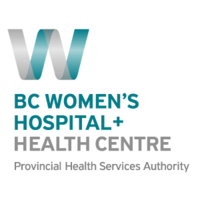Mature Women’s Health: There is so much more to talk about
Calling all women In British Columbia:
Did you know there is an exciting conversation afoot in our province? It’s around the subject of mature women’s health. And the buzz is making me giddy. 
BC Women’s Hospital and Health Centre has realized that maybe they aren’t exactly a centre for health for ALL women. They are ground-breakers for perinatal health in BC. If you are trying to conceive, are currently pregnant, are delivering or have just delivered a baby they are the place to go. After that, what does BC Women’s have to offer?
Take me: I’m 43. I am staring down the barrel of middle age, perimenopause, and menopause. I have teenage children and parents on both sides of my marriage who are imminently approaching their 80’s. I have decades left of work, and play, to come, financial goals to achieve so that maybe someday I can afford to not work, and a body that is changing, changing, changing. I need to be healthy to do the things I wish to do. Where can I go now to find out the best ways to support my health in the years from 45-70? Where should I go if a medical problem arises that requires treatment? What if what I experience in my body, due to the perfectly normal orchestration of perimenopause, is so disruptive I can’t do my life? Who do I talk to then?
These questions are on my mind and on the minds of so many of my patients. Last month, when I had the chance to go hang out at the Health Design Lab at Emily Carr University of Art and Design and talk about BCWH’s interest in creating a Mature Women’s Health Centre, I leapt at the chance. The conversation was just what I needed, and now I want to share some of the ideas I heard in case you might like to talk about this, too.
First Steps
First, there is nothing set in stone. This is all in the conversation, design, needs-assessment stage. BC Women’s began by issuing an online survey. They were told they would be lucky if they got 90-100 responses. By the third week that it was live, they had already accumulated over 1000 responses. 85% of the responses were from women in the lower mainland and 70% were Caucasian. It was identified that in another stage of the process input from women outside the lower mainland and women of different ethnicities would be polled specifically, to make sure that the needs of our sisters from different cultural backgrounds and geographical locations would be considered. The women filled out many multiple-choice type responses but also took the time to provide written responses to more specifically outline their thoughts.
What women said
The main concern for women in this stage of their lives was STAYING PHYSICALLY FIT. Oh, my heart. Weight management was next, sleep, retirement, family/relationships, finances, menopause, memory. Clever women of BC – if we stay physically fit we will better achieve most of the other things on the list. As a physiotherapist that has championed women’s health, the fact we know this feels triumphant.
Women indicated that they had accessed various services in the past 2 years: family doctors, dentists, pharmacists, physio and so many others. 60% felt their needs were met by these practitioners (phew!) but another 37% felt their needs were only “somewhat” met. They went on to state the reasons why, paraphrased below. I wonder if these statements will resonate with you:
“Medical professionals focus on symptom relief, not illness prevention”
“Information for women is not coordinated”
“Who are the specialists with women’s health focus – a cardiologist focused on women for example?”
“My doctor does not have enough knowledge about nutrition or hormones”
“I don’t have a family doctor so I don’t receive proactive care. I only go to the doctor when something is wrong. I have to reinvent myself from the ground up. They do their best but I worry something will slip between the cracks”
“I want one place where all the health implications of menopause were understood”
“I feel I am not heard or understood. I am occasionally marginalized. I am unclear as to whether what I describe is part of my aging process or not.”
These comments are the gold nuggets of this whole experience so clearly is the need for centralized education and care for women identified.
Roll out step two
The second step for BC Women’s was to have a series of workshops at the Health Design Lab. The first involved lay-women who came together to highlight what their needs are now and where they see them going in years to come depending on their present circumstances and future goals. The second set of workshops involved health practitioners who are known for work in women’s health. This is the set I participated in. 
In this workshop, among family physicians who identified that the current business model of the Medical Services Plan is among the deepest flaw in the system when it comes to women’s health, I learned that our Family Docs are not provided a structure whereby they can adequately take the time to understand a woman’s current health status. Further, I learned that for gynecologists, a 47-year-old woman with heavy periods is not an appropriate referral as this is normal, healthy business as usual. Clearly, peri-menopausal women are getting the squeeze here. There is literally no place for them to go to have their needs assessed and a treatment plan provided.
I’m not even talking about medical management of a true disease process. I am talking about supporting well women to age optimally. Happily, I am not alone in this vision. It was top-of-mind during the Health Practitioners Workshop where we created mock-up versions of how we saw the role of BCWH in the coming revolution of Mature Women’s Health. We saw visions of a centre that curated evidence-based information about all aspects of aging women’s health in formats accessible by all women across BC. We saw a physical space that women could come to for assessment and triage, where a health navigator could provide a women-led wellness plan. There are a lot of steps between now and fruition, but the start of this conversation is promising. It gives me shivers.
Steps we can take now
Remember the Well Baby clinics? Where you weighed your baby and talked to nurses on hand but mostly you got to talk to other women just as exhausted and strung out as you were? Lay-women identified that they would welcome a format like this around this new phase of life. Peer to peer information sharing is powerful stuff and we don’t have to wait for BC Women’s to figure it all out.
Starting now, I invite you to follow on Instagram or Facebook @physiogillian so that we can make our own Well Women group. Let’s have all the conversations. Start by telling me what you want in your BC Mature Women’s Health Centre. And how you want to age well.

Gillian McCormick is a Pelvic Health Physiotherapist with over 20 years of experience, passionate about elevating homo-sapiens through rehabilitation, education and love.
Find her at www.physiogillian.com, and @physiogillian on Instagram and Facebook.
If you enjoyed Gillian’s article, make sure to check out her previous posts: Body Talk and Incontinence and Dementia.
